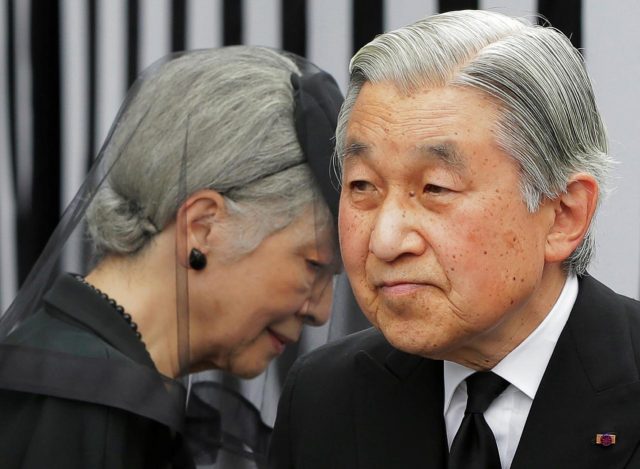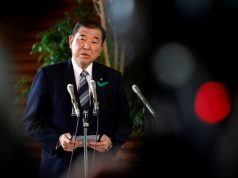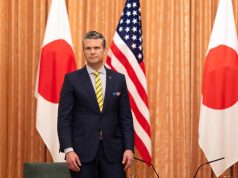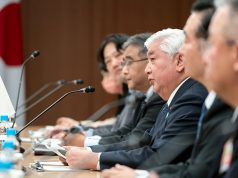
TOKYO — Emperor Akihito’s planned abdication — the first by a Japanese monarch in about two centuries — should take place on April 30, 2019, a special panel chaired by Prime Minister Shinzo Abe agreed on Friday.
Akihito, who turns 84 on December 23 and has had heart surgery and treatment for prostate cancer, said in rare remarks last year that he feared age might make it hard to fulfill his duties.
The 10-member Imperial Household Council includes lawmakers, royals and supreme court justices and the government was required by law to hear its views before formally deciding the date.
Akihito will be succeeded by his heir, 57-year-old Crown Prince Naruhito.
“This is the first abdication by an emperor in 200 years and the first under the (post-war) constitution,” Abe told reporters after announcing the results of the panel’s discussion.
“I feel deep emotion that today, the opinion of the Imperial Household Council was smoothly decided and a big step was taken toward the imperial succession.”
The cabinet will likely formally decide the date next Friday, media reported.
Once considered divine, Japan’s emperor is defined in the post-war constitution as a “symbol of the state and of the unity of the people”, but has no political power.
Akihito, along with Empress Michiko, has spent much of his time on the throne seeking to soothe the wounds of a World War Two, which was fought in his father Hirohito’s name, and consoling victims of disasters or other woes. He is widely respected by many average Japanese.
Akihito and Michiko — the first commoner to marry a Japanese emperor — have worked to reconcile relations across Asia, which suffered from Japan’s aggression before and during World War Two, with numerous visits abroad.
In 1992, he became the first Japanese monarch in living memory to visit China, where bitter memories of the war run deep. During that visit the emperor said he “deeply deplored” an “unfortunate period in which my country inflicted great suffering on the people of China.”
Akihito has also consistently urged the Japanese people never to forget the horrors of war, remarks that have garnered increased attention since Abe took office in 2012 and sought to adopt a less apologetic tone ove Japan’s past military aggression.
“He redefined the job. He wanted to modernize the monarchy and take care of the unfinished business … and bring the imperial household closer to the people,” said Jeffrey Kingston, director of Asian studies at Temple University Japan.
“He’s been remarkably successful on all fronts. He is deeply admired and respected. His moral authority is unquestioned.”
Once Akihito steps down a new “imperial era” will begin, replacing the current “Heisei” or “achieving peace” period which began on January 8, 1989, the day he took the throne.
Japan uses the Western-style Gregorian calendar but has also preserved the ancient custom in which the reign of a new emperor ushers in a new era.
The last time a Japanese emperor abdicated was in 1817.
A law adopted in June allows Akihito to step down, but left details such as timing to be worked out later.
The law did not address the problem of the future of the aging, shrinking imperial family.
Eleven-year-old Prince Hisahito, the son of Akihito’s younger son Prince Akishino, is the emperor’s only grandson and will be second in line to the throne after his father following the abdication. Naruhito’s daughter, Princess Aiko, who turned 16 on Friday, cannot inherit the males-only throne.









